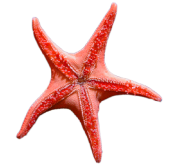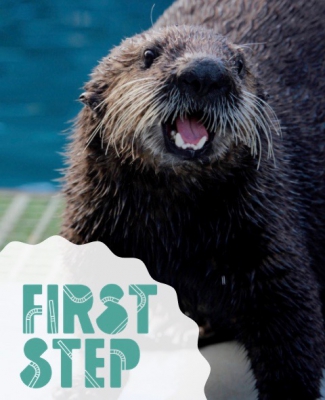22 Top Aquariums Up the Ante in National Push to Cut Plastic Pollution November 8, 2018
Seward, Alaska (November 7, 2018) - Twenty-two top aquariums across the United States, including the Alaska SeaLife Center (ASLC), have already eliminated 5 million straws in their coordinated campaign to reduce sources of plastic pollution. Now they’re upping their game by encouraging individuals, businesses and cities around the country to cut back on single-use plastic—starting with plastic straws—by Earth Day 2019.
Banding together in a joint #FirstStep to plastic-free waters, the aquariums seek commitments from 500 more businesses, pledges from individuals, and policy action by municipalities, all to reduce a growing source of single-use plastic waste that harms ocean and freshwater wildlife around the world.
The campaign will kick off during #NoStrawNovember, a nationwide movement asking people who don’t need them to refuse plastic straws for 30 days.
“Reducing straws alone doesn’t solve the problem of plastic in our ocean, but it’s an important first step,” said Tara Riemer, ASLC President, and CEO. “Our goal is to get Alaskans thinking about ways to reduce single-use plastics—and encourage the availability of ocean-friendly alternatives in the state.”
The #FirstStep campaign includes:
- Recruiting 500 new businesses to partner with aquariums across the country by committing to offer straws only on request, for a total of 1,000 businesses committed by Earth Day 2019
- An online pledge site (pledge.ourhands.org/) where individuals can commit to make the last straw their first step to plastic-free waters
- Initiatives by partner aquariums to inspire cities in their regions to pass straws-on-request ordinances and other local measures to reduce single-use plastic
- An opportunity for individuals to get tips via text message on ways to cut back on single-use plastic in their daily lives.
Since the 2017 launch of the Aquarium Conservation Partnership (ACP), 22 partner aquariums in 17 states – located on the coasts and in the heartland – have eliminated more than 5 million straws a year, stopped using plastic shopping bags, and have committed to significantly reduce or eliminate plastic beverage bottles by 2020. Nearly 500 businesses—including United Airlines, the Chicago White Sox, Dignity Health hospitals and Farmer Brothers Coffee—have made plastic-reduction commitments in collaboration with ACP aquariums.
Municipalities in aquarium communities, and California on a statewide basis, have enacted laws either banning single-use plastic from many foodservice operations or requiring businesses to offer plastic straws only when customers request them. ACP partner aquariums are supporting these efforts in a variety of ways.
“There’s new scientific evidence, almost on a weekly basis, about the ways that plastic pollution is harming marine and aquatic wildlife,” said Monterey Bay Aquarium Executive Director Julie Packard. “I find it so encouraging that people are responding quickly to the threat—by changing their habits, and asking businesses and governments to step up and take action.”
“The health of our lakes and rivers is important not only to the wildlife that live there – they are a recreation and economic resource for us all,” said Bridget Coughlin, president and CEO of Chicago’s Shedd Aquarium. “Beyond inspiring the public to take action, it’s our duty to empower businesses and community leaders to raise the issue of plastic pollution taking place in both freshwater and marine habitats, lead by example and make long-lasting, impactful change.”
“A sea change is underway, and people want to do their part to ensure the future of our ocean planet,” said National Aquarium President and Chief Executive Officer John Racanelli.“All 22 of the aquariums that make up the ACP are committed to reducing single-use plastics, and it is now our hope to inspire and serve as a model for other organizations and companies as well as individuals. The reality is that if everyone does their part, we can make a meaningful impact.”
ACP's initiative has already expanded globally. Its work sparked the European Commission and United Nations Environment Program – with support from five international partners, including ACP – to announce a commitment by European Union Commissioner for Environment, Maritime Affairs and Fisheries Karmenu Vella at the 5th international "Our Ocean" conference October 29-30 in Bali, Indonesia to coordinate a global coalition of 200 aquariums by 2019 to raise public awareness about plastic pollution.
For more information about the #FirstStep campaign or to take the pledge, please visit pledge.ourhands.org/.
About the Aquarium Conservation Partnership
The Aquarium Conservation Partnership (ACP) is a collaboration of 22 U.S.public aquariums in 17 states, all committed to advancing conservation of the world’s ocean, lakes, and rivers through consumer engagement, business leadership, and policy changes. ACP was founded by Shedd Aquarium in Chicago, Monterey Bay Aquarium in California, and National Aquarium in Baltimore, in collaboration with the Association of Zoos and Aquariums. More information at pledge.ourhands.org/.
About the ASLC
Opened in 1998, the Alaska SeaLife Center operates as a private, non-profit research institution and public aquarium. It generates and shares scientific knowledge to promote understanding and stewardship of Alaska’s marine ecosystems. To learn more, visit www.alaskasealife.org.


